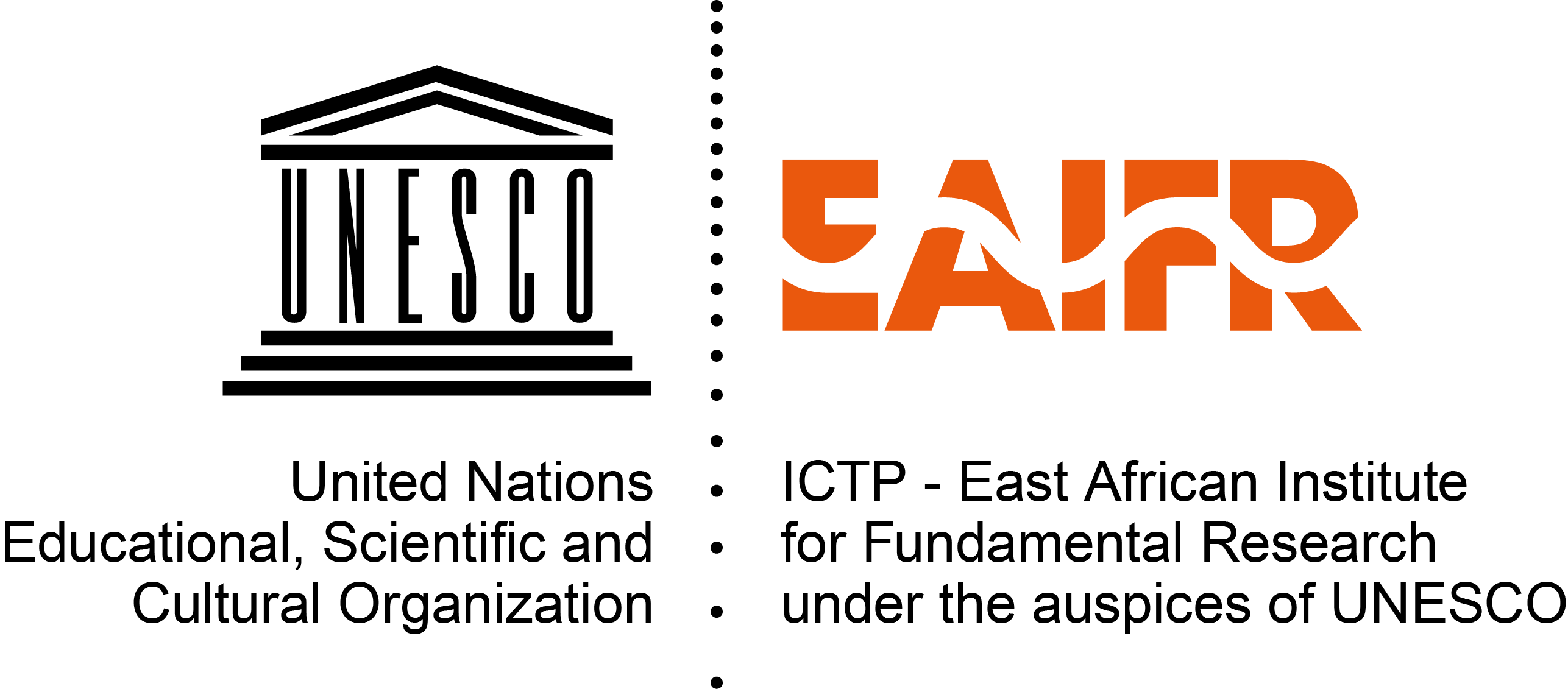ICTP-East African Institute for Fundamental Research
KIST2 Building CST
Nyarugenge Campus
University of Rwanda
Kigali, Rwanda
GEO@EAIFR Webinar Series 2024
Dr. Corentin Caudron, Associate Professor at the Université Libre de Bruxelles (Belgium) will discuss how to monitor volcanoes using continuous-based seismicity.

The East African Institute for Fundamental Research (EAIFR) and the International Centre for Theoretical Physics (ICTP) wish to inform those who may be interested of a GEO@EAIFR webinar. This seminar will take place on August 27, 2024 and will be broadcast live on ZOOM. It will also be recorded and later posted on the ICTP-EAIFR YouTube channel, where one can find the previous recorded GEO@EAIFR webinars. Below all the details:
Speaker: Dr. Corentin Caudron, Associate Professor at the Université Libre de Bruxelles (Belgium). See https://gtime.ulb.be/
Title: Towards monitoring volcanoes using continuous-based seismicity
When: August 27, 2024 at 4:00 pm (Kigali time).
Register in advance for this meeting by clicking here.
All are very welcome.
Abstract: For the last decades, seismic noise has been increasingly providing information on the time evolution of the subsurface. With data storage capabilities expanding over the last decades, new data processing tools have emerged taking advantage of continuous seismic records.
In this contribution, we will focus on recent advances in monitoring volcanoes using continuous seismic recordings. Approximately 10% of the Earth's population lives under the threat of one of about 1500 active volcanoes. Among the different approaches to monitor volcanoes, seismology forms the basis and most active volcanoes are nowadays equipped with one seismometer. It is unique amongst the Earth Science disciplines involved in volcano studies, as it provides real-time information ; as such, it is the backbone of every monitoring program worldwide.
Although most studies and monitoring tools are still focussed on volcanic earthquakes, a common manifestation at volcanoes worldwide is the so-called seismic noise, which comprises both volcanic tremor and ambient seismic noise. The well-established seismic interferometry has allowed us to detect precursors (dv/v or decorrelation) to eruptions at different volcanoes and has provided critical insights into volcanic processes. Yet, puzzling observations have been made at different volcanoes requiring the use of models to reach a more comprehensive understanding. Another limitation concerns the use of different processing workflows and parameters at most volcanoes. More recent approaches have tracked volcanic tremor using network covariance based approaches (Covseisnet), while others have provided insights into the genesis of gas-driven eruptions using seismic attenuation (DSAR) and correlation with tidal stresses (LSC). This presentation will go back to the basics of the noise-based time-lapse monitoring at volcanoes until the most recent developments. These most recent developments will include the novel Distributed Acoustic Sensing technology which has the potential to provide unprecedented resolution to monitor volcanoes.
Biography: C. Caudron is a geophysicist whose main research interests concentrate on the dynamics of hydrothermal systems, through seismo-acoustic approaches. He has a long experience in applying geophysics to monitoring, including seismic networks, acoustic instruments and the emerging DAS technology. He has been co-leading the Commission on Volcanic Lakes (2019-2023), and the focus group on Artificial Intelligence for Volcanic Eruptions Forecasting and has been appointed as board editor in the new free open-access journal Volcanica.



